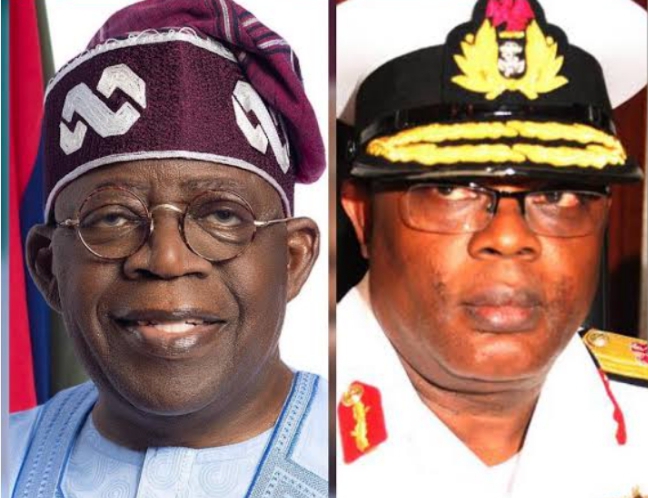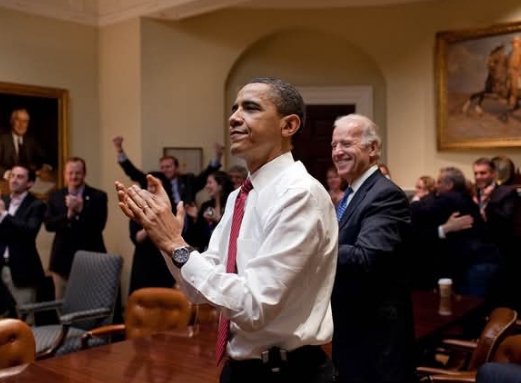‘Under what legal provision can the President appoint a Sole Administrator when the constitution does not recognize such a position?’
THIRTY-SIX POTENTIAL CONSTITUTIONAL CRISES OR QUESTIONS ARISING FROM PRESIDENT BOLA TINUBU’S DECLARATION OF A STATE OF EMERGENCY IN RIVERS STATE, SUSPENSION OF THE GOVERNOR, DEPUTY GOVERNOR, AND LAWMAKERS, AND APPOINTMENT OF A RETIRED MILITARY OFFICER AS SOLE ADMINISTRATOR
By Barr Chidi Otamiri
1. Does the President have the constitutional power to suspend an elected Governor and Deputy Governor when the constitution only provides for removal by impeachment, resignation, or death? Constitution of the Federal Republic of Nigeria 1999 (as amended) sections 180 and 191.
2. Can the President unilaterally suspend the Rivers State House of Assembly, which is an independent legislative body under the constitution? Constitution of the Federal Republic of Nigeria 1999 (as amended) section 96.
3. Does Section 305 of the constitution on which the President hugely relied upon to proclaim the state of emergency give the President the authority to remove elected officials when it only allows for the declaration of a state of emergency?
4. Under what legal provision can the President appoint a Sole Administrator when the constitution does not recognize such a position?
5. Does the President have the authority to create and administer an oath of office on the Sole Administrator that is not recognized by the constitution?
6. Since only the courts and lawmakers have the power to remove the Governor and the Deputy Governor by a constitutional process, doesn’t the President’s action amount to an unconstitutional usurpation of both legislative and judicial authorities?
7. Doesn’t this action of the President undermine the federal structure of Nigeria by centralizing power at the presidency?
8. Doesn’t this action amount to a dictatorship, where an elected government is forcefully suspended by mere presidential fiat without due process?
9. Doesn’t this action set a dangerous precedent that allows the President to remove any State Governor under the guise of a state of emergency?
10. What legal recourse do the suspended Governor, Deputy Governor, and state lawmakers have under the constitution?
11. Can the Supreme Court invalidate this action, and what would be the consequences if the court rules against the President?
12. Doesn’t this action have the potential to cause civil unrest, protests, or even political violence in Rivers State and beyond?
13. If a President can remove elected officials arbitrarily, doesn’t this make elections meaningless and reduce public confidence in democracy?
14. How would the international community (e.g., ECOWAS, AU, UN, and foreign governments) react to such an unconstitutional exercise of power?
15. If the Rivers State Governor refuses to comply with the President’s order, can the President use military force, and would that not be an abuse of power?
16. Doesn’t this action create a constitutional conflict between the federal and state governments over governance rights?
17. If a President can remove state officials without legal basis, doesn’t this signal a shift towards authoritarian rule?
18. Would the National Assembly become a rubber-stamp institution if it does not challenge such an unconstitutional act?
19. Doesn’t this situation expose the need for constitutional amendments to clarify the limits of presidential powers in a state of emergency?
20. The Section 308 of the Nigerian Constitution clearly lists only four officials who enjoy immunity: President, Vice President, State Governors, Deputy Governors.
Since the Sole Administrator is not a recognized constitutional position, can the President unilaterally grant him immunity that the constitution does not provide for?
21. If the “President’s oath” which was administered by the President confers immunity on the Sole Administrator, can’t this be legally challenged as an act of executive recklessness and overreach?
22. Section 1(1) of the 1999 Constitution states that Nigeria’s constitution is supreme and any law inconsistent with it is null and void. Can an immunity granted by the President’s personal decree override constitutional provisions?
23. If the Sole Administrator commits a crime, will courts honour the immunity granted by the President, knowing that it is not backed by the constitution?
24. Without legal accountability, can the Sole Administrator violate human rights, embezzle funds, or abuse security forces without facing consequences while in office and after his tenure as Sole Administrator?
25. If the Sole Administrator refuses to obey court rulings, can the judiciary take any action against him?
26. Even though the President’s pronouncement didn’t affect the judiciary, won’t the judiciary become powerless, as military rule typically operates by decree rather than by constitutional law.
27. Can a military rule be used to correct democracy? Isn’t democracy self-sufficient? Doesn’t the appointment of a retired military Sole Administrator imply that military rule is superior to democracy? Are there no democratic remedies for democratic problems? What about these constitutionallly recognised remedies to resolve democratic problems – Judicial review, legislative reforms, constitutional amendments, and political mediation? Aren’t they sufficient?
28. Can’t it now be said by the action of Mr President that military rule is compatible with and complementary to democracy?
29. With the Governor and Deputy Governor still officially in office (though suspended) and a Sole Administrator now exercising executive powers, which of them is the rightful authority under the law?
30. If the Governor and Deputy Governor challenge their suspension in court and continue issuing executive orders, does this not create a dual-government crisis?
31. If the Governor, Deputy Governor, and Sole Administrator all claim executive privileges and immunity, who will security agencies, civil servants, and financial institutions recognize?
32. Can the Governor after his suspension legally inherit all the legal issues that will arise during the time of the administration of the Sole Administrator?
33. Can Rivers State function effectively when there are three different power holders, each potentially issuing contradictory directives?
34. If there is an ongoing legal case involving Rivers State, who will represent the government? Is it the Attorney General of the state appointed by Governor Fubara or can the Sole Administrator validly appoint his own Attorney General recognised by law? Or will the Sole Administrator operate without an Attorney General?
35. If a legal matter arises against the Governor, Deputy Governor, or Sole Administrator, and all claim immunity, who will the courts recognize as a valid respondent?
Imagine this scenario:
Rivers Guy Company Ltd, wins a contract from the Rivers State Government to construct a major road. The contract was awarded and signed by Governor Fubara before the declaration of a state of emergency. However, after the President suspends the Governor and appoints a Sole Administrator, Vice Admiral Ibok-Ete Ekwe Ibas (Rtd), the new administration cancels the contract and awards it to another company without following due process.
Feeling aggrieved, Rivers Guy Company Ltd sues the Rivers State Government, naming Governor Fubara (suspended), Deputy Governor Ngozi (suspended), and Sole Administrator Ibas as defendants.
Legal Questions Arising in Court
a. Who is the rightful respondent?
Governor Sir Siminalayi Fubara & Deputy Governor Ngozi claim they were unlawfully suspended and still hold office, meaning they should be the only ones answering for government actions.
Sole Administrator Ibas claims he is the de facto executive authority and therefore the right respondent.
b. Can the court hear the case if all named defendants claim immunity?
The Nigerian Constitution (Section 308) grants immunity only to sitting Governors and Deputy Governors. But Sole Administrator Ibas also claims immunity granted by the President’s oath, which is unconstitutional but practically enforced by security agencies. Since all three can claim immunity, what happens to the legal claims of the plaintiff?
36. Don’t these numerous potential constitutional crises that would likely be caused by the action of the President imply that the President has committed more impeachable offenses than the Rivers State Governor whose actions the President has openly reprimanded and is trying to correct? Can “unconstitutionality” correct “unconstitutionality”?
Unfortunately, the Attorney General of the Federation and all the legal advisers of the President who should know better don’t seem to know these or pretend not to know them for some selfish or political reasons.
Please share this message and let it get to all stakeholders, especially members of the National Assemby. Let’s collectively save our democracy.



